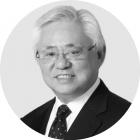Building sustainability into our business
Contact
Building sustainability into our business
Claudio Descalzi of Eni highlights work in Myanmar with Danish Institute of Human Rights as a model example.
As an energy company, we feel a responsibility to help build a future where everyone has a fair access to efficient and sustainable energy. This is why we are making sustainability a core element of all our activities, with a view to building value, reducing risk and creating new opportunities.
By doing so, we are building a solid and expanding business, making it sustainable in the long term – for our people, our investors, the communities we engage with and the public at large.
We work on climate, safety, human rights and our relations with communities, among many other initiatives.
Climate change is so crucial that we have dedicated a separate section to it, which follows the recommendations of the Taskforce on Climate-related Financial Disclosure. Eni participated in the TCFD since its creation – only example among oil & gas companies.
Our strategy for the energy transition focuses on reducing our own emissions, building a lower-carbon portfolio, developing renewable energy and investing in Research & Development. Between 2014 and 2017, greenhouse gas emissions intensity in our upstream operations has declined by 15%, in line with the target of a 43% reduction by 2025.
We are now looking closely at how to help build a truly circular economy: by planning the reuse of a product as we manufacture it and not just at the end of its life, our society can cut waste and use less energy.
Sustainability also means attention to people. It means keeping our personnel safe, respecting human rights in the countries where we operate and contributing to the development of the communities with which we work in 71 countries around the world.
In this spirit, we have introduced new technologies to increase the safety of our operations and our people. Our indicators show continuous improvements, confirming our top performance among oil and gas companies.
We have strengthened our procedures and scaled up training to ensure the respect of human rights, following the models of international organizations such as the Corporate Human Rights Benchmark. In Myanmar, our collaboration with the Danish Institute of Human Rights has turned a potentially complex situation into a case study of positive community engagement.
Everywhere we operate, we strive to be a driver for development. In Egypt, we deliver all of our gas production to the local market; in Sub-Saharan Africa, we provide electricity to 18 million people; in Pakistan, we have improved access to clean water; in Nigeria, we are supporting agriculture with our Green River Project. In 2017, we devoted 70.7 million euros to community investment.
Undeniably, we have more work ahead of us to reach our targets: we must bring our incident rate to zero, eliminate process flaring, consolidate the human rights culture further in our operations, and make the Myanmar example a model for other cases.
But the fact that we are making so much progress while building a more financially sustainable company (we have reduced our cash neutrality from $114/barrel in 2014 to $57/barrel in 2017), gives me confidence that we are moving in the right direction.
Similar to this:
Myanmar allows 100% foreign ownership for retail and wholesale commerce
Announcing my departure from Colliers International
Positive changes arising from Myanmar Investment Law and Rule







